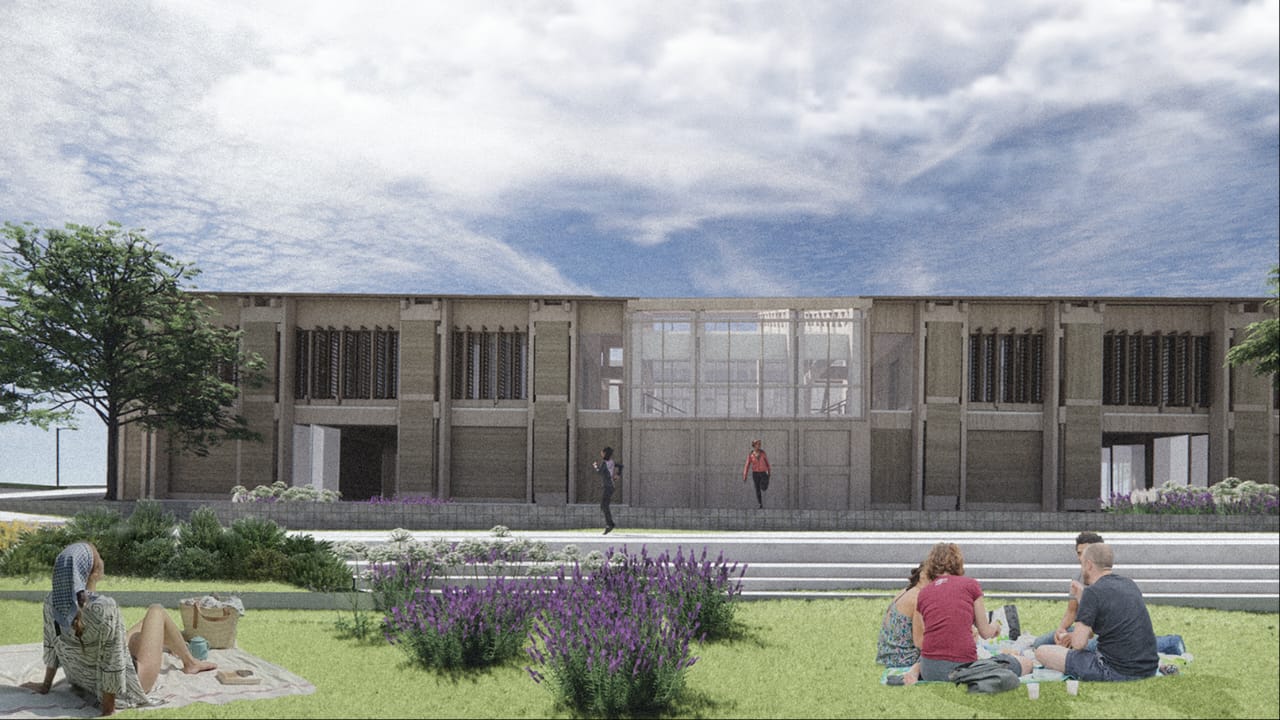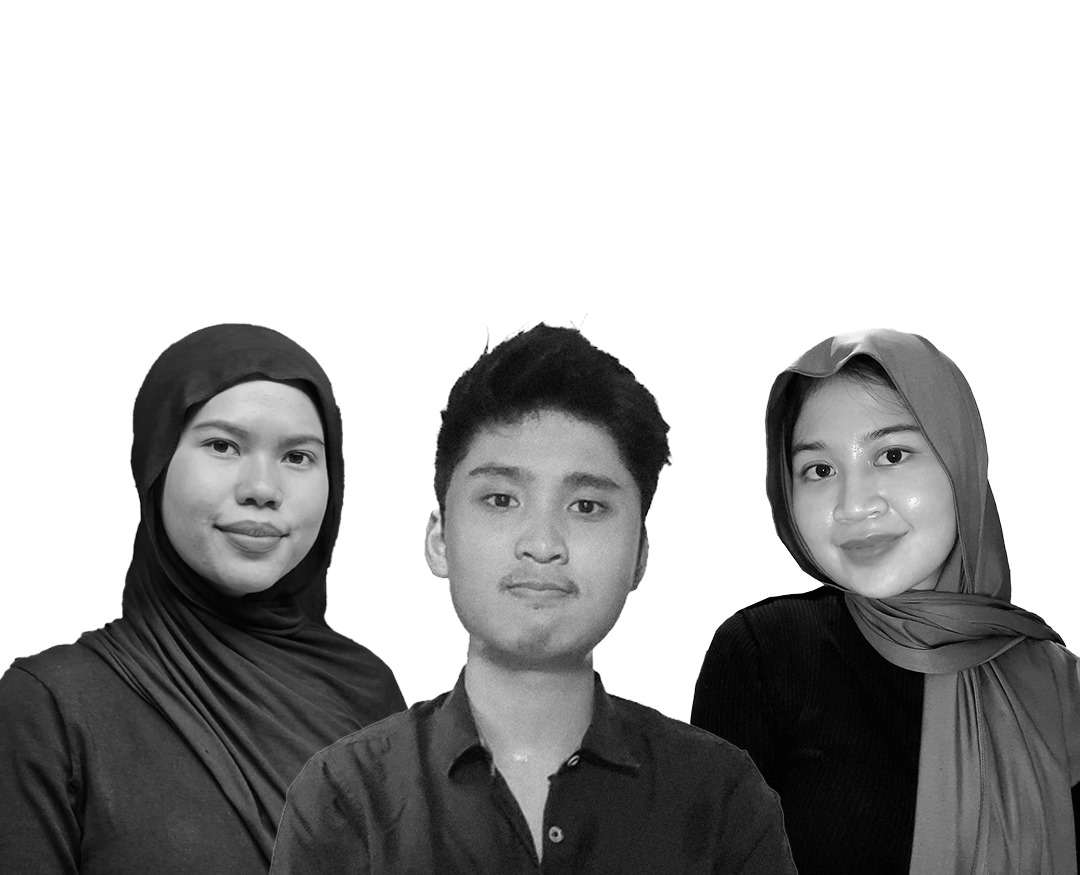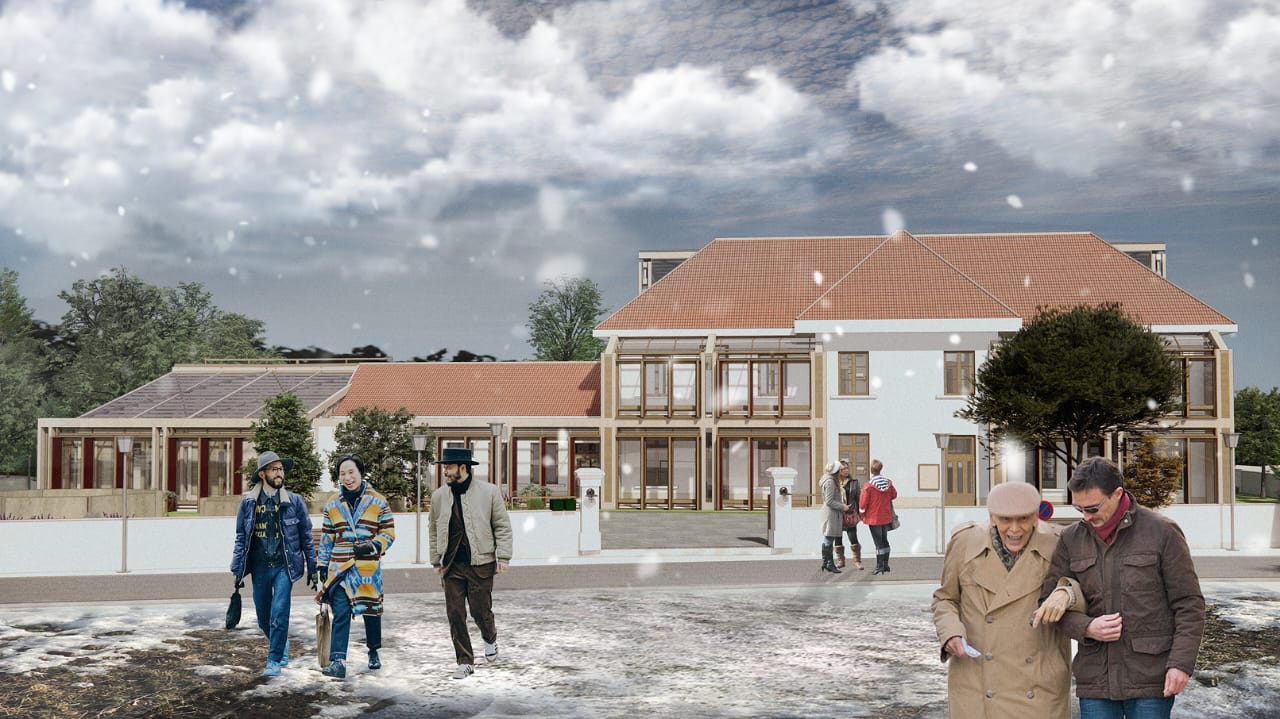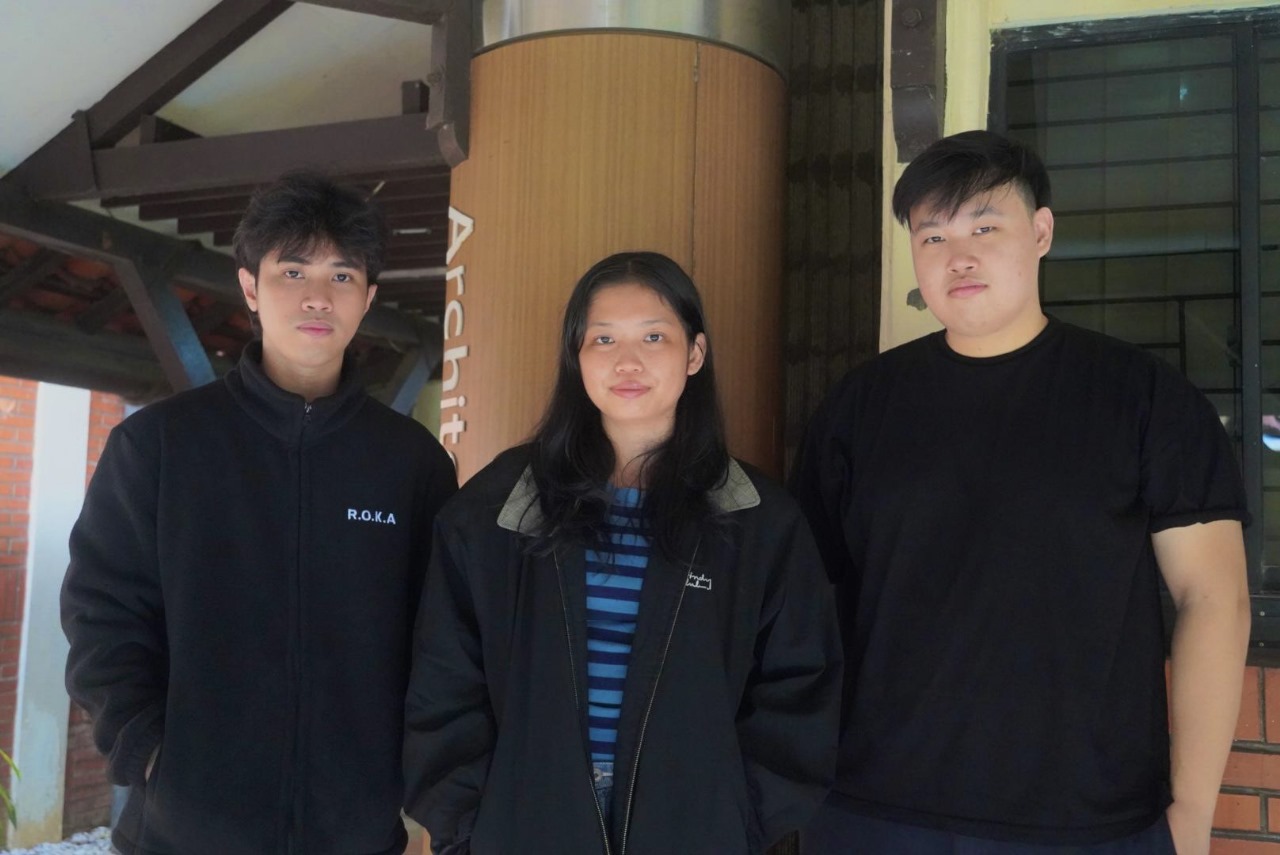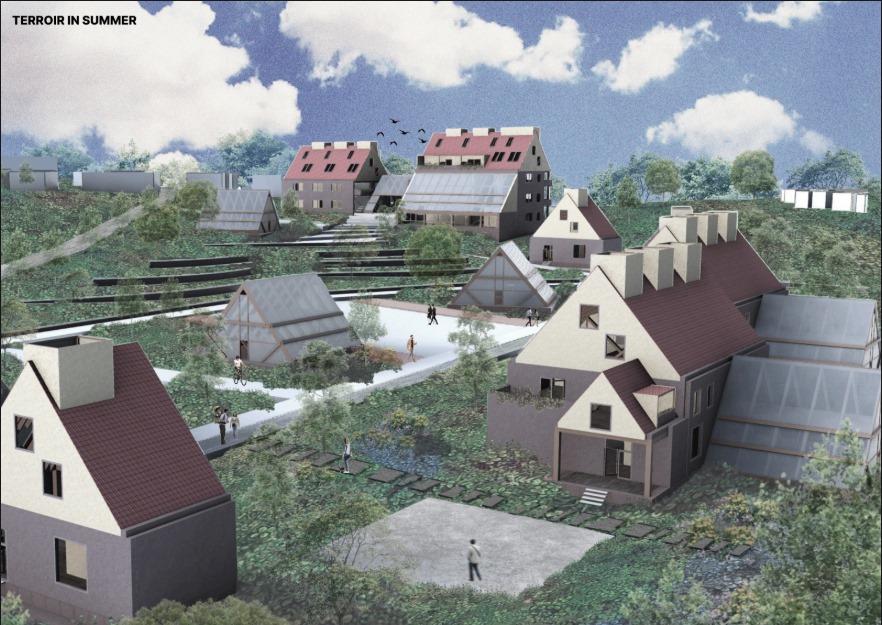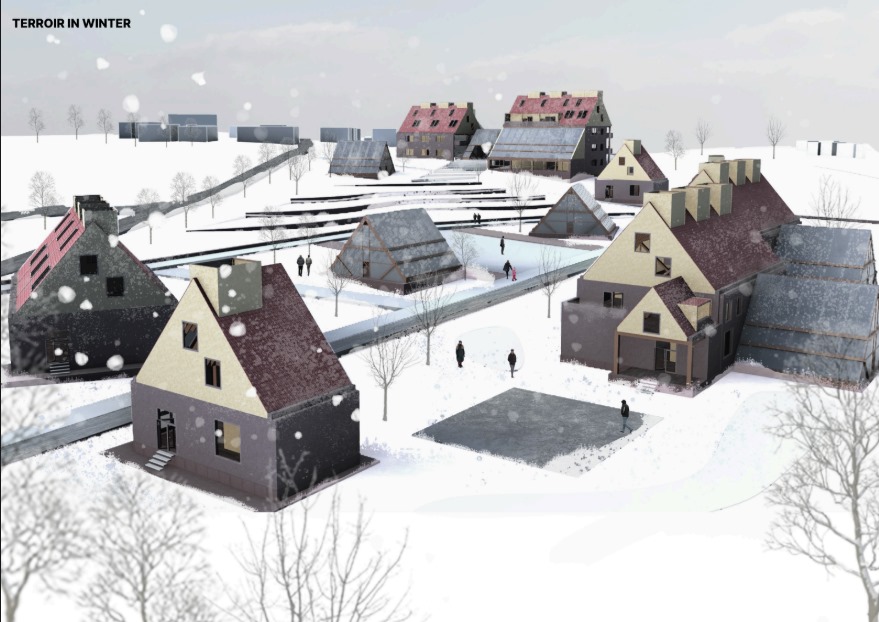Two student teams from the Architecture Study Program, Faculty of Engineering, Universitas Indonesia (FTUI), have achieved remarkable success at the 2025 Architecture Student Contest (ASC)—a prestigious international architectural design competition organized by Saint-Gobain. Since its inception in 2004, the annual competition has attracted over 1,300 students from 30 countries. This year, UI teams proudly secured Second and Third Place.
The UI team that won Second Place—comprising Vine Novia Pakpahan, Syahlaisa Afra Amani, and Luqman Kamaludin, under the supervision of Dr. Miktha Farid Alkadri, S.Ars, M.Ars.—presented a project titled “The Flux.“ The project emphasizes circularity in architecture as a bridge between people, nature, and culture. Spanning two zones in France, the innovative design includes the revitalization of an old building in Chimilin into an eco-friendly digital hub, alongside the development of a new laboratory and dormitory complex in Villefontaine.
Team representative Syahlaisa stated, “The Flux is not just a design project; it’s a narrative of how architecture can serve as a bridge between the past and the future. The entire design employs passive strategies, utilizes local materials, and adopts water-sensitive design principles.”
Meanwhile, the team consisting of Zahari Syafi Arradhin, Valencia Yvonne, and Kevin Suryawijaya claimed Third Place with their project titled “Breaking Territory Through Terroir.“ Under the guidance of Dr. Ova Chandra Dewi, the project explores the concept of terroir—formed by climate, ecology, local materials, and traditions—to unite fragmented areas. The case study focuses on the Nord-Isère region of France, connecting the rural zone of Chimilin with the urban area of Les Grands Ateliers by integrating the Lyon–Turin high-speed rail line as a catalyst for cultural and ecological exchange.
According to Zahari, the project aims to design architecture that not only serves physical functions but also fully responds to local context and culture. “Terroir is not just about place—it’s about identity. We sought to create spaces that bridge territorial boundaries through this understanding,” he said.
These two innovations reflect the outstanding capability of FTUI Architecture students in harmonizing visionary design with global sustainability issues. By upholding local values and contextual sensitivity, these design concepts offer significant potential for adaptation in Indonesian development, particularly in addressing the challenges of tropical climates and rapid urbanisation.
The terroir approach to understanding local ecology, along with the use of circularity and passive design strategies in architecture, aligns with the needs of energy-efficient, environmentally adaptive, and locally rooted tropical architecture. These projects can inspire the creation of sustainable and contextually appropriate public spaces and multifunctional buildings across Indonesia.
In recognition of these innovations, the Dean of FTUI, Prof. Kemas Ridwan Kurniawan, S.T., M.Sc., Ph.D., expressed his appreciation to both teams for their achievements. He stated that this accomplishment reflects the spirit of innovation, sustainability, and contextual awareness that FTUI continually fosters.
“This victory is not only a source of pride for FTUI but also a contribution to the future of sustainable and inclusive architecture. We deeply appreciate the dedication and hard work of the students and their academic mentors. This achievement strengthens FTUI’s commitment to producing graduates who are ready to face global challenges while contributing to the development of sustainable architecture in Indonesia,” said Prof. Kemas.
***
Public Communication Office
Faculty of Engineering Universitas Indonesia

